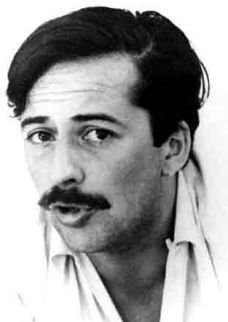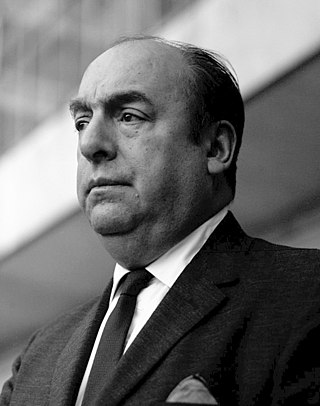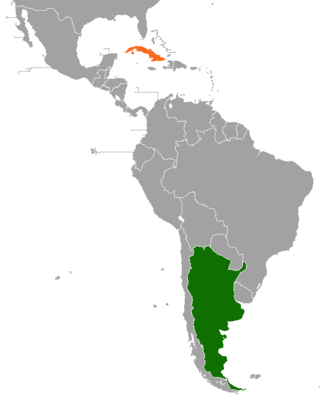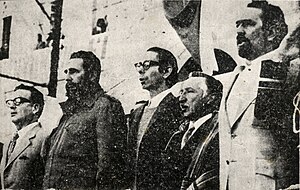
Salvador Guillermo Allende Gossens was a Chilean socialist politician who served as the 28th president of Chile from 1970 until his death in 1973. As a socialist committed to democracy, he has been described as the first Marxist to be elected president in a liberal democracy in Latin America.

Osvaldo Dorticós Torrado was a Cuban politician who served as the president of Cuba from 1959 to 1976. He was a close ally of Cuban revolutionary and longtime leader Fidel Castro.

Popular Unity was a left-wing political alliance in Chile that stood behind the successful candidacy of Salvador Allende for the 1970 Chilean presidential election.

Miguel Humberto Enríquez Espinosa was a physician and a founder of the Chilean Marxist-Leninist urban guerrilla Movement of the Revolutionary Left (MIR), founded in 1965. He was General Secretary of the MIR between 1967 and his death in 1974.

Jorge Eduardo Alessandri Rodríguez was the 26th President of Chile from 1958 to 1964, and was the candidate of the Chilean right in the crucial presidential election of 1970, which he lost to Salvador Allende. He was the son of Arturo Alessandri, who was president from 1920 to 1925 and again from 1932 to 1938.

Salvador Allende was the president of Chile from 1970 until his suicide in 1973, and head of the Popular Unity government; he was a Socialist and Marxist elected to the national presidency of a liberal democracy in Latin America. In August 1973 the Chilean Senate declared the Allende administration to be "unlawful," Allende's presidency was ended by a military coup before the end of his term. During Allende's three years, Chile gradually transitioned into a socialist state.

Lota is a city and commune located in the center of Chile on the Gulf of Arauco, in the southern Concepción Province of the Biobío Region, 39 kilometres south of Concepción, and is one of the ten cities (communes) that constitutes the Concepción metropolitan area. The city is mostly known for being the traditional centre of coal mining in Chile, albeit mining ended in the 1990s.

On September 11, 1973, Salvador Allende, President of Chile, committed suicide from gunshot wounds during a coup d'état led by General Augusto Pinochet, commander-in-chief of the Chilean Army. After decades of suspicions that Allende might have been assassinated by the Chilean Armed Forces, a Chilean court authorized the exhumation and autopsy of Allende's remains.

Pablo Neruda was a Chilean poet-diplomat and politician who won the 1971 Nobel Prize in Literature. Neruda became known as a poet when he was 13 years old and wrote in a variety of styles, including surrealist poems, historical epics, political manifestos, a prose autobiography, and passionate love poems such as the ones in his collection Twenty Love Poems and a Song of Despair (1924).

Chile–Russia relations are the bilateral foreign relations between Chile and Russia. The establishment of diplomatic relations between Chile and the USSR countries happened on December 11, 1944.

Beatriz Patricia Ximena Allende Bussi, also known as Tati Allende, was a Chilean Socialist politician and surgeon. She was the daughter of former president of Chile Salvador Allende and his wife, Hortensia Bussi.

Chile–Cuba relations refers to interstate relations between the Republic of Chile and the Republic of Cuba. Cuba has been, since the 1960s, a reference point to left wing politicians in Chile.
The following lists events that happened during 1970 in Chile.
The following lists events that happened during 1971 in Chile.
The following lists events that happened during 1972 in Chile.

Current and historical relations between Argentina and Cuba, have existed for over a century. Both nations are members of the Community of Latin American and Caribbean States, Latin American Integration Association, Organization of American States and the Organization of Ibero-American States.

Chile–Sweden relations refers to the diplomatic relations between Chile and Sweden. Both nations enjoy friendly relations, the importance of which centers on the history of Chilean migration to Sweden during the 1970s. Approximately 100,000 Chileans and their descendants reside in Sweden, making the country home to the third largest Chilean diaspora community. Both countries are members of the Organisation for Economic Co-operation and Development.

Cuba–France relations are the diplomatic relations between Cuba and France. Both nations are members of the United Nations.
The Group of Personal Friends, sometimes referred to by the Spanish acronym GAP, was the informal name of an armed guard of the Socialist Party of Chile maintained from 1970 to 1973 for the protection of Salvador Allende. The GAP was trained and equipped by Cuba and initially composed of ex-guerrilla fighters.
Martín Nicolás Zilic Hrepic is a Chilean physician and former politician. While a student in the University of Concepción he participated in the November 18, 1971, meeting with Fidel Castro. During his time as Minister of Education he had to face the 2006 student protests in Chile.
















